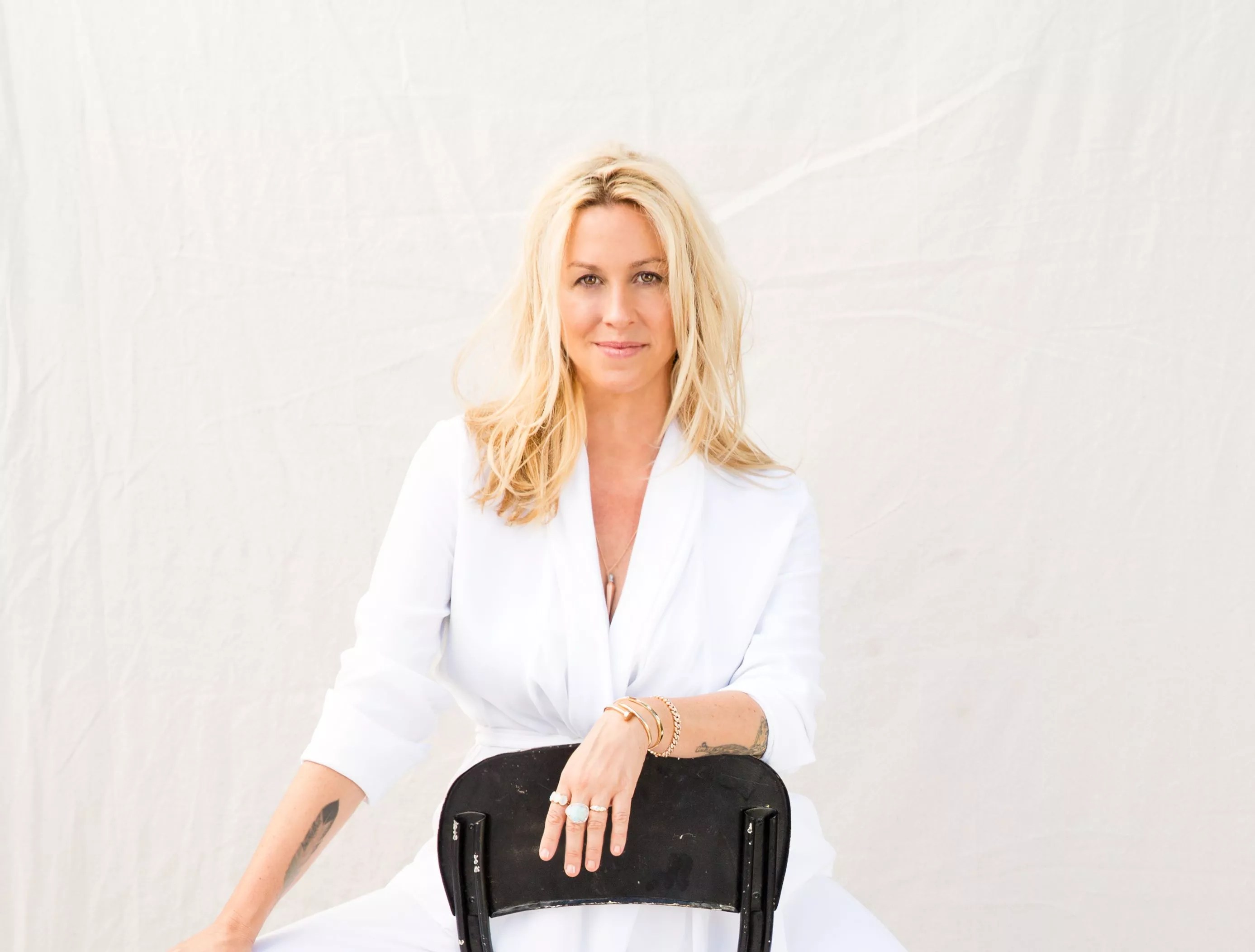
Photo by Shelby Duncan

Audio By Carbonatix
Twenty-five years is a long time. Twenty-six counting a pandemic is even longer. But we can all agree sufficient time has passed since Alanis Morissette’s Jagged Little Pill was an everpresent part of the culture that it now can be properly celebrated.
On Wednesday, August 18, thousands of people will be singing along as Morissette performs her 1995 breakthrough album in its entirety at the iThink Financial Amphitheatre in West Palm Beach. (If you can’t make it, it’s worth digging out your – or your parents’ – old CD book and giving it a listen with fresh ears.)
Only four years separated Morissette’s breakthrough album from the other touchstone female singer of the ’90s, Britney Spears. While it seems like comparing apples with candy canes, the two stars shared many similarities. Both were child actors who found early casting success, Britney on the Disney Channel’s Mickey Mouse Club, Alanis getting slimed on Nickelodeon’s You Can’t Do That on Television.
Morissette’s first two albums, Alanis and Now Is the Time, also share DNA with Spears dance-pop, in that they feature an underage artist marketed as a jailbait sex symbol. While that schtick turned Spears into a cultural phenomenon, it didn’t work for Morissette, whose biggest success in ’95 consisted in opening for Vanilla Ice. But she was able to work in anonymity to come up with a new formula.
The new ingredient that helped Jagged Little Pill sell more than 30 million copies? Authenticity.
While it’s not at all uncommon now for women in the music industry to arise almost out of nowhere based on music they wrote (see: Lorde, Billie Eilish), it was rare in the years preceding Jagged Little Pill. But something was changing.
On the charts the week of June 17, 1995 – the week Jagged Little Pill was released – Madonna’s “Take a Bow” had been on the Billboard Hot 100 for six months. Also on the charts were bonafide singer-songwriters Sheryl Crow and Melissa Etheridge.
Out of that tide came Jagged Little Pill, with every song co-written by Morissette. The 13-track album quickly found success on the heels of its first single, “You Oughta Know,” which peaked at atop the Hot 100 on July 22, 1995. (The album would top the Billboard 200 on October 7.)
The press quickly typecast Morissette as the angriest of angry women who isn’t taking any more of your shit. However, in retrospect, most Jagged Little Pill‘s lyrical contact eschews the angry heartbreak found on “You Oughta Know.” Rather, the songs are about life and the meaning – or lack thereof – behind it.
Of course, Morissette wasn’t the first to do this. Critically acclaimed acts like Ani DiFranco and Liz Phair unleashed similar sentiments into music on lo-fi recordings. Still, Morissette had the backing of a major label. She could afford to get big names like the Red Hot Chili Peppers’ Flea and Dave Navarro to play on “You Oughta Know,” adding even more rage to her scathing lyrics. (Rumors have swirled for decades that the song is aimed at actor Dave Coulier, AKA Uncle Joey on Full House.)
Most of the record is sparser, though, with confessional ballads meant to showcase her voice and lyrics, backed by only drum machines, guitars, and the occasional harmonica blown by Morissette herself.
It struck a chord.
Thirty-three million copies sold, the 13th-most of any album in music history. The massive success allowed for other female singer-songwriters to be heard, from Jewel to Fiona Apple. The charts became so crowded with prominent female singer-songwriters that Sarah McLachlan founded a successful annual touring festival devoted only to those artists: Lilith Fair.
With her current tour, Morissette gets to revisit that time while inviting female-fronted acts (Garbage and Cat Power) open for her. The night will crescendo to Morissette singing the album that defined an era.
Alanis Morissette. With Garbage and Cat Power. 7 p.m. Wednesday, August 18, at iThink Financial Amphitheatre, 601-7 Sansburys Way, West Palm Beach; 561-795-8883. Tickets cost $34.50 to $176 via livenation.com.